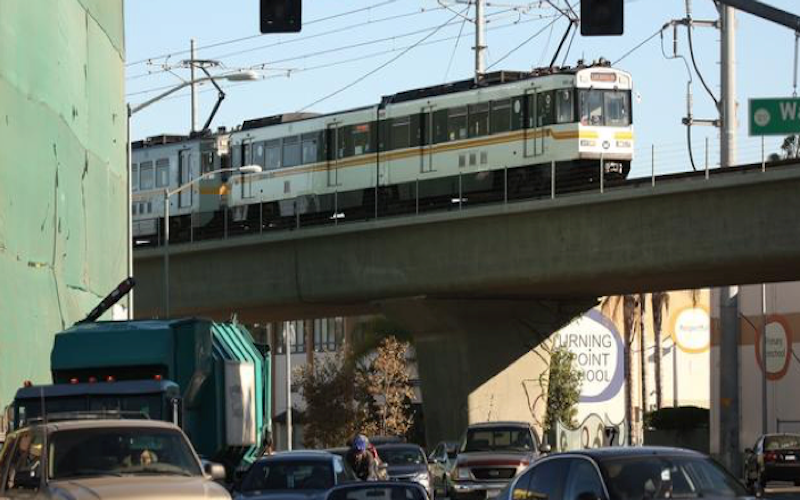CommentsTAKING THE HYDRID APPROACH-To reduce greenhouse gas emissions in California, the state has pledged that by 2030, emissions will be brought to 40% below 1990 levels. One major component in reaching this goal is to achieve a 23% reduction in driving by the state’s residents. This is a challenge. It will be difficult. Electric vehicles are part of the solution, but not the complete solution. They currently account for under 5% of vehicle sales, and should the percentage of electric vehicles increase, it is seriously doubtful the entire stock of vehicles in California could be turned over by 2030 to meet the 23% reduction in driving emissions.
No matter how many electric vehicles are on the roads in the near future, there will still be plenty of vehicles with gas powered engines. Indeed, with projected population growth, there will be more vehicles on the road, increasing gridlock. While an electric vehicle does not emit tailpipe exhaust, the health strains of driving in gridlock still remain.
I switched to a hybrid commuting style that involves some driving but also taking mass transit for as many trips I can for as many days possible. This is change to one’s concept of moving around Los Angeles. It is a challenge, but it can be done on many levels.
The reduction of driving by using mass transit can be achieved in the daily work commute, and for other trips, too, like shopping, movies, concerts and eating out. This is what I do. It can be done.
In the March 6, 2017, edition of the Los Angeles Times, the director of the Southern California Association of Governments (SCAG,) Hasan Ikhrata, is quoted as saying, “We’re doing to our best, but I think it’s too ambitious, to be honest with you.” Honesty from public officials is fine, but where is the attitude of pursing a goal and chasing it down every pathway in a relentless pursuit to achieve something? Where is the resolution to step-up and make a change? It’s not there.
This is an attitude of capitulation. Cleaning the air of pollution and reducing greenhouse emissions will not be achieved this way. We must face the problem head-on and charge into it.
Moreover, the current trend toward finding a partial solution for reducing greenhouse emissions is to create dense housing around transit hubs and centers that will encourage those residents to ride transit. This is a good goal, and could come to fruition, but why stop there? Why be locked into rigid thinking that only residents of dense housing will ride transit?
Why are the residents of single family homes not called upon to do their share too? This is outdated thinking based on social norms, the belief that if a person lives in the suburbs, exurbs or in the homes with lawns inside cities, riding mass transit is a sign of descending into society’s lower depths.
As long as there is the lack of will from officials to confront the very serious issue of a planet warming from greenhouse emissions from vehicles, as well as the idea that certain people living in single family homes do or will not ride mass transit, then we are lost. Air pollution will continue to increase. The earth’s temperature will continue to rise, melting the ice caps, raising the levels of the oceans and causing widespread devastating floods. Damaging storms will grow in frequency and intensity, destroying homes, farmland and life.
We see this here in California, having experienced the worst period of drought over the past five years followed by a record-smashing period of rainfall. Right now, the wet Spring ground which should remain moist for months to nurture life is already being dried by sudden spikes in temperature and drying winds which in the not too distant past only blew in the Fall.
The threats are here from global warming, and this is predicted to only get worse if action is not taken to drive less and reduce greenhouse emissions. These are dangers we can try to run from, or drive from, but we cannot hide from them. These threats will find us unless we show resolve and change our social norms.
(Matthew Hetz is a Los Angeles native. He is a transit rider and advocate, a composer, music instructor, and member and president and executive director of the Culver City Symphony Orchestra) Edited for CityWatch by Linda Abrams.
Sidebar
Our mission is to promote and facilitate civic engagement and neighborhood empowerment, and to hold area government and its politicians accountable.

 CityWatch Los Angeles
Politics. Perspective. Participation.
CityWatch Los Angeles
Politics. Perspective. Participation.
28
Sat, Mar














